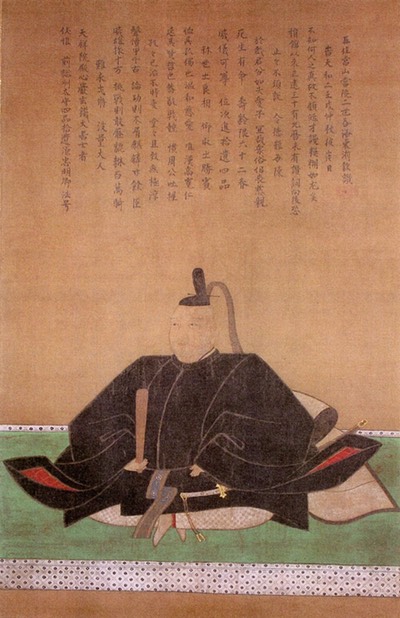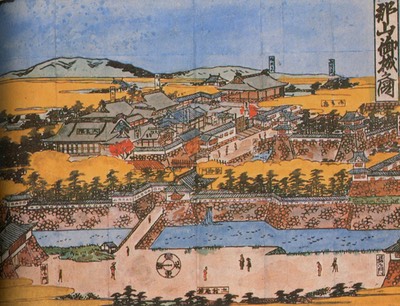The Bukōden claims that, relating the run-up to his duel with Yoshioka Matashichirō to one of his deshi, Musashi recalled how:
路に八幡の社前を経、憶、「我幸に不圖して神前に來れり。當祈勝利」と、及詣社壇、恭て鰐口の紐を執て將に打鳴さんとす。忽ち思ふ、「我常に佛神をも不信仰、而今此難を憚て頻に敬祷す。神其受や、諸吁怯矣」。即ち其紐を措て、孜々として下壇、慙愧ぢ汗流れて踵に至る。
On my way there I passed in front of the Hachiman shrine, and I thought to myself, “What good fortune that I should come before the gods by accident. I should take this opportunity and pray for victory.” However, when I went up to the shrine’s altar and took the crimson cord to sound the temple gong it suddenly occurred to me that normally I have never put any faith in gods and Buddhas. Yet, now, as I am facing imminent danger, I am suddenly eager to pay my respects. Ah, I must be flinching from danger. At that moment I let loose the shrine’s gong’s cord and stepped down from the altar. I was so deeply ashamed that I felt the sweat running down by back.
There is no shine with the name Hachiman anywhere near Ichijōji, which is why it is now widely believed that the shrine Musashi visited on his way to his duel was the Hachidai shrine. This shrine, after all, is situated only a hundred yards east of Ichijōji. Asuming musashi stayed on some inn east of the capital, he must indeed have passed the grounds of the Hachidai shrine on his way to his duel.
Musashi’s duel with the Yoshioka brothers is still celebrated at the Hachidai shrine, which is situated in a wooded area behind the Shisen monastery. Founded in 1294, the shrine owned large tracts of land, or keidai, in the surrounding area, including a place called Sagarimatsu. A huge trunk of pine wood, belonging to a tree that once graced the place of the duel is now kept on the shrine’s precinct and venerated. In front of it stands a bronze statue of Musashi wielding two swords.
Any queries of remarks? Launch or join a discussion at our new FORUM

